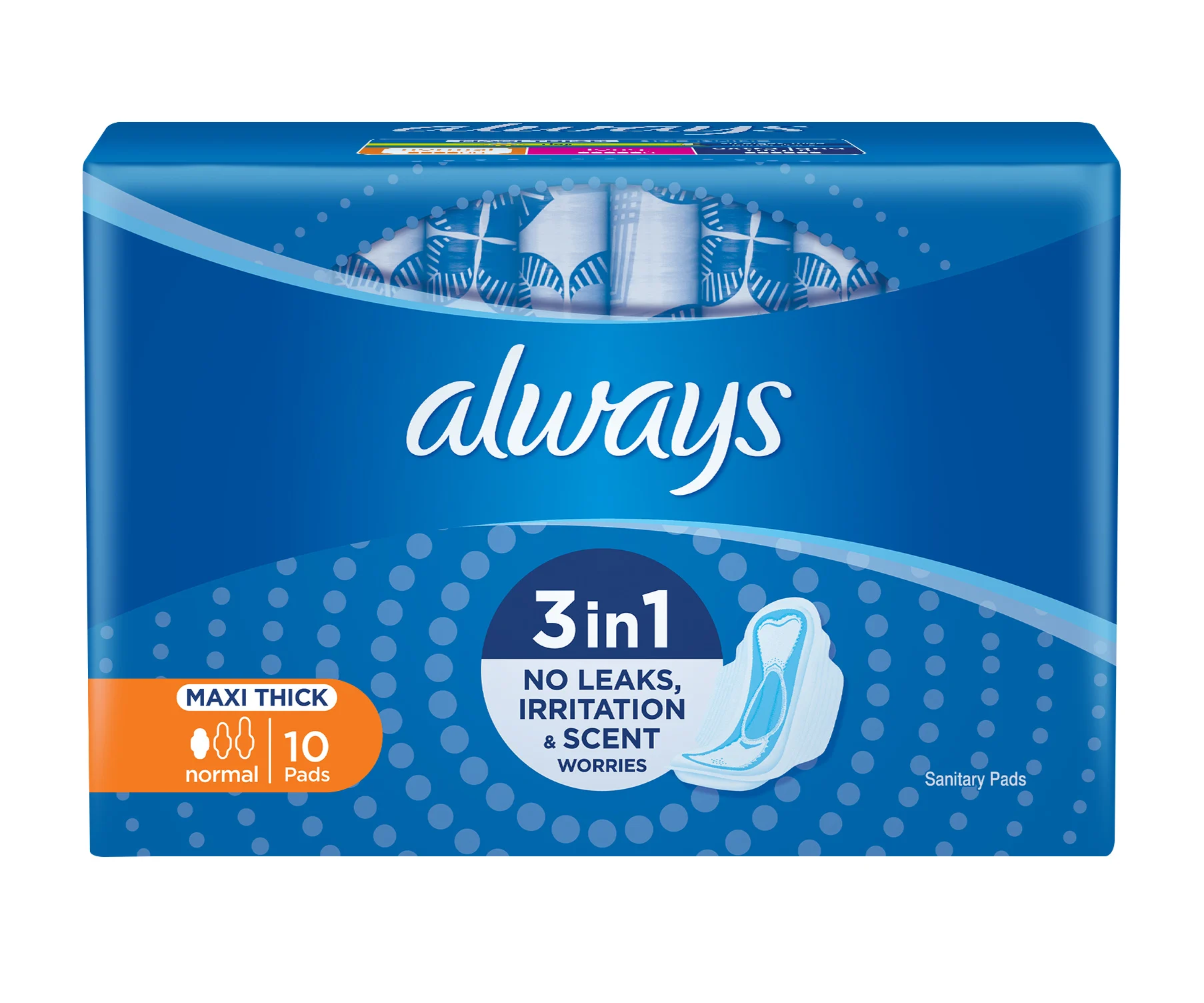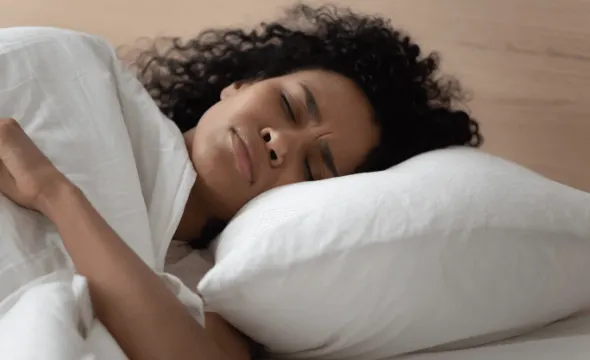PMS and Insomnia: How to Improve Sleep Quality During the Premenstrual Phase

Here’s a topic, not discussed often, that affects many women around the world: Premenstrual Syndrome (PMS) and Insomnia. For women, the premenstrual phase can be challenging due to a range of physical and emotional symptoms. Among these, disrupted sleep patterns are particularly common and can significantly affect daily life. Let’s try to understand the connection between PMS and insomnia or sleep, and explore how hormones influence sleep during this phase. In this article, we will elaborate on all the treatment options for PMS-related insomnia, and offer practical tips for improving sleep quality during PMS . Whether you're experiencing PMS-related sleep disturbances yourself or simply curious about the topic, read on to discover valuable insights and natural remedies for PMS-induced insomnia to help manage your sleep during the premenstrual phase.
How is PMS and Sleep Connected?
One of the often-overlooked symptoms of PMS is insomnia. Research suggests that women with PMS typically report sleep-related complaints. These comprise of disturbances in sleep patterns such as insomnia, frequent awakenings, non-restorative sleep, unpleasant dreams or nightmares, and poor sleep quality associated with their symptoms in the days leading up to menstruation. The exact mechanisms underlying this connection are still being studied, but hormonal fluctuations during the menstrual cycle are thought to play a significant role.
The Impact Hormones Could Have on Sleep
Hormones, such as estrogen and progesterone, fluctuate throughout the menstrual cycle, influencing various bodily functions, including sleep. During the premenstrual phase, levels of these hormones fluctuate dramatically, which can disrupt the body's internal clock and sleep-wake cycle. Estrogen, for example, has been shown to have a stimulating effect on the brain, potentially leading to difficulty falling asleep. Conversely, progesterone, which typically rises in the second half of the menstrual cycle, may promote drowsiness but can also lead to fragmented sleep.
Uncertainty of Changing Hormone Levels and Sleep Patterns
One of the challenges of managing sleep during the premenstrual phase is the unpredictability of hormone fluctuations. While some women may experience relatively mild symptoms, others may struggle with severe insomnia and daytime fatigue. Additionally, individual differences in hormone sensitivity and overall health can further complicate the picture. This uncertainty can make it difficult to establish consistent sleep patterns and exacerbate feelings of frustration and anxiety.
PMS Insomnia Treatment
Fortunately, several treatment options are available for managing PMS-related insomnia. These may include lifestyle modifications, over-the-counter supplements, and prescription medications. Lifestyle changes such as maintaining a regular sleep schedule, practicing relaxation techniques before bed, and avoiding stimulants like caffeine and electronics can help improve sleep quality. Over-the-counter supplements or herbal remedies may also promote relaxation and aid in falling asleep. In more severe cases, healthcare providers may prescribe medications such as sleep aids to address sleep disturbances associated with PMS. Remember to always consult your doctor before you take any form of medication.

Also, PMS means your period is right around the corner. Hence it’s imperative that you stay prepared at all times with Always’ sanitary pads . Try the Maxi Thick pads which are designed with an innovative extra-absorbent core that provides protection for hours at a stretch. The comfortable flexi pillow and dry top sheet offer extra comfort so that you stay fresh, clean, and lively at all times.
Those who prefer tampons can also explore Always’ Tampax tampons which are soft and highly-absorbent. These gently hold discharge and minimise the risk of leakage. We recommend trying the Tampax Compak tampons which come with come with a smooth, compact applicator for discretion, and a built-in protective skirt to help prevent leakage for up to 8 hours.
Ways to Sleep Better When You PMS
Now, let's explore some practical strategies, including natural remedies for PMS insomnia to help improve sleep quality during the premenstrual phase:
Create a Relaxing Bedtime Routine:
Establishing a calming bedtime routine can signal to your body that it's time to wind down and prepare for sleep. Activities such as taking a warm bath, practicing gentle yoga or meditation, and reading a book can help promote
Mindful Breathing Exercises:
Deep breathing exercises can help reduce stress and promote relaxation, making it easier to fall asleep. Try taking slow, deep breaths in through your nose and out through your mouth for several minutes before bed.

Limit Stimulants and Electronics:
Avoiding stimulants like caffeine and nicotine, as well as electronic devices like smartphones and computers, in the hours leading up to bedtime can help signal to your body that it's time to sleep. The blue light emitted by screens can disrupt the production of melatonin, a hormone that regulates sleep-wake cycles.
Create a Comfortable Sleep Environment:
Make sure your bedroom is conducive to sleep by keeping it cool, dark, and quiet. Invest in a comfortable mattress and pillows that provide adequate support for your body.
Consider Natural Remedies:
In addition to lifestyle changes, certain natural remedies may help alleviate PMS-related insomnia. Herbal supplements such as chamomile tea, lavender essential oil, and magnesium have been shown to promote relaxation and improve sleep quality in some individuals.
In conclusion, PMS-related insomnia can significantly impact women's quality of life during the premenstrual phase. However, by understanding the connection between PMS and sleep, addressing hormonal fluctuations, and implementing practical strategies for improving sleep quality, women can better manage these symptoms and enjoy a restful night's sleep.
Whether it's through lifestyle modifications, over-the-counter remedies, or natural interventions, there are various options available for managing insomnia during PMS. By prioritising sleep and taking proactive steps to support overall health and well-being, women can navigate the challenges of the premenstrual phase with ease and comfort.
Disclaimer:
Please note the date of the last review or update on all articles. No content on this site, regardless of date, should ever be used as a substitute for direct medical advice, diagnosis or treatment from your doctor or other qualified clinician. Always is committed to ensuring that all of our products meet rigorous safety standards; Always pads prioritize safety , protection and comfort of its consumers.
FAQs










